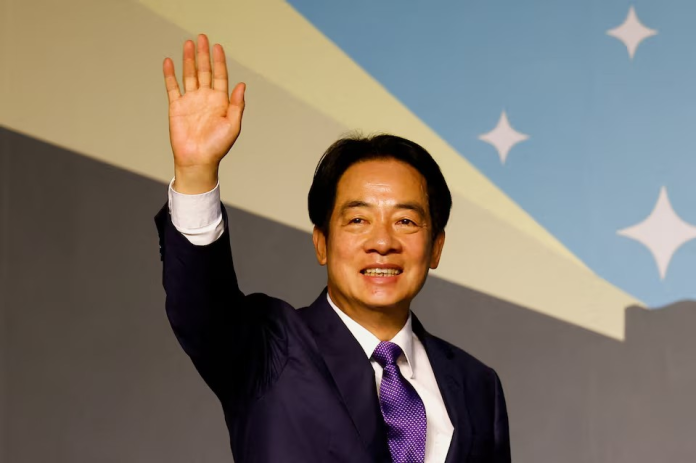Taiwan’s new president Lai Ching-te pledged in his inauguration speech on Monday that the self-governing island would maintain the status quo in relations between the two sides of the strait amid rising tensions with mainland China, Taiwanese media reported.
Lai also called on China to stop “political and military intimidation” of the territory, which Beijing claims as its own, and to share responsibility with Taipei for “maintaining peace and stability in the Taiwan Strait” so that the world would be “free from the fear of war.”
Beijing is seeking to increase its military presence on the island. The new president said Taiwan and China, which split after a civil war in 1949, “do not obey each other.”
Lai urges to “choose dialog over confrontation”
The leader of the ruling pro-independence Democratic Progressive Party urged China to “choose dialog over confrontation, exchange over containment.” Lai also suggested cooperating with the island “on the principles of parity and dignity” to “pursue peace and mutual prosperity together.”
The 64-year-old new leader also said Taiwan should improve its defence capabilities in the face of “numerous threats and infiltration attempts from China,” strengthen its economic security and work with other democracies to achieve peace. He also added:
“By standing side-by-side with other democratic countries, we can form a peaceful global community that can demonstrate the strength of deterrence and prevent war, achieving our goal of peace through strength.”
Taipei has been strengthening ties with countries including the US in recent years. Joining Lai at the swearing-in ceremony was Vice President-elect Hsiao Bi-khim, 52, Taiwan’s former de facto ambassador to the US.
Among the more than 500 foreign guests attending the inauguration ceremony were about 30 parliamentarians from Japan and two former senior US officials – former National Economic Council Director Brian Deese and former Deputy Secretary of State Richard Armitage.
Taiwan’s presidents can be elected for up to two four-year terms. Lai, who was the island’s prime minister from 2017 to 2019, unsuccessfully challenged Tsai in the DPP’s 2019 presidential primary and served as vice president during his second term.
